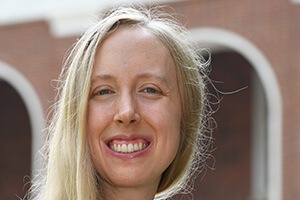Young Investigators’ Day was established in 1978 to recognize young investigators who are trained at Johns Hopkins University School of Medicine and to provide them with a forum for their work. The awards are intended to recognize research undertaken by applicants while registered as students or postdoctoral fellows at the school of medicine. This year 1 PREP scholar, 12 students, 10 postdocs, and 1 clinical fellow were selected to receive Young Investigators’ Day prizes. These individuals were selected from an exceptionally strong pool of applicants by a committee of Johns Hopkins University School of Medicine faculty.
Four from Hopkins BME recognized at Young Investigators’ Day

Award winners affiliated with Hopkins BME include:

Joshua D. Cohen – Michael A. Shanoff Research Award
Many cancers can be cured by surgery and systemic therapies when detected while they are still localized, yet most cancer types lack noninvasive screening modalities to identify them before they have metastasized to distant sites. Under the mentorship of Bert Vogelstein within the Ludwig Center at Johns Hopkins, my work focused on the development of a noninvasive blood-based diagnostic for the detection and localization of a variety of cancer types. This test, called CancerSEEK, assays the levels of circulating proteins and mutations in cell-free DNA. In a study applying this test to 1,005 patients with nonmetastatic, clinically detected cancers of the ovary, stomach, pancreas, esophagus, colorectum, lung or breast, CancerSEEK tests were positive in a median of 70% of the eight cancer types. Importantly, the specificity of CancerSEEK was greater than 99% when evaluated in a cohort of 812 healthy controls. Additionally, to further improve the performance of CancerSEEK, I developed a novel technological methodology that can more sensitively and specifically detect ultrarare circulating tumor DNA molecules. In summary, this work lays the conceptual and practical foundation for a single, multianalyte blood test for cancers of many types.

Ariel Isser – David Yue Research Award
Decades of research in cellular therapies for cancer have focused on modulation of cytotoxic — CD8+ — T cells, the immune system’s professional killers. In the Schneck lab, we have sought to advance these cell therapies to the clinic through development of acellular platforms that promote CD8+ T cell antitumor activity. That said, a recent appreciation for the pivotal role that helper — CD4+ — T cells play in therapeutic cancer immune responses has motivated us to generate nanoparticle technologies targeting both effector and helper functions of CD4+ T cells. In our recent work, we showed that our nanoparticles can expand rare antigen-specific murine and human CD4+ T cells. Intriguingly, unlike with other traditional stimulation platforms, CD4+ T cells activated with these nanoparticles demonstrate cytotoxic activity, a phenotype that has been observed almost exclusively in vivo, allowing us to probe the etiology of this uncommon but clinically relevant cell subset. Additionally, using a nanomaterial approach to spatially control the proximity of CD4+ and CD8+ T cells during activation, we demonstrated that help signals from CD4+ T cells could be relayed to CD8+ T cells, in turn enhancing CD8+ T cell memory formation, function, cytotoxicity and antitumor activity. These findings illustrate several ways in which CD4+ targeted nanotechnologies can bolster current approaches to cancer immunotherapy.

Ho Namkung, Ph.D. – David I. Macht Research Award
Schizophrenia [SZ] and bipolar disorder [BP] are highly heritable major psychiatric disorders that share a substantial portion of genetic risk as well as their clinical manifestations. This raises a fundamental question of whether, and how, common neurobiological pathways translate their shared polygenic risks into shared clinical manifestations. In the lab of Dr. Akira Sawa, we showed the miR-124-AMPAR pathway as a key common neurobiological mediator that connects polygenic risks with behavioral changes shared between these two psychotic disorders. We discovered upregulation of miR-124 in biopsied neuronal cells and postmortem prefrontal cortex from patients with SZ and BP. Intriguingly, the upregulation is associated with the polygenic risks shared between these two disorders. Seeking mechanistic dissection, we generated a mouse model that upregulates miR-124 in the medial prefrontal cortex, which includes brain regions homologous to subregions of the human prefrontal cortex. We demonstrated that upregulation of miR-124 increases GRIA2-lacking calcium permeable-AMPARs and perturbs AMPAR-mediated excitatory synaptic transmission, leading to deficits in the behavioral dimensions shared between SZ and BP.

Alexandra N. Rindone – Nupur Dinesh Thekdi Research Award
In professor Warren Grayson’s lab, we created 3D maps that allowed us to see the distribution of blood vessels and stem cells throughout the mouse skull for the first time. To do this, we developed a light-sheet microscopy platform that enabled us to image the entire top portion of the skull at single-cell resolution. Using our 3D maps, we discovered that stem cells were spatially associated with specific types of blood vessels during skull bone growth and healing. These results will help inform the research and development of regenerative therapies for patients suffering from large skull bone injuries.
